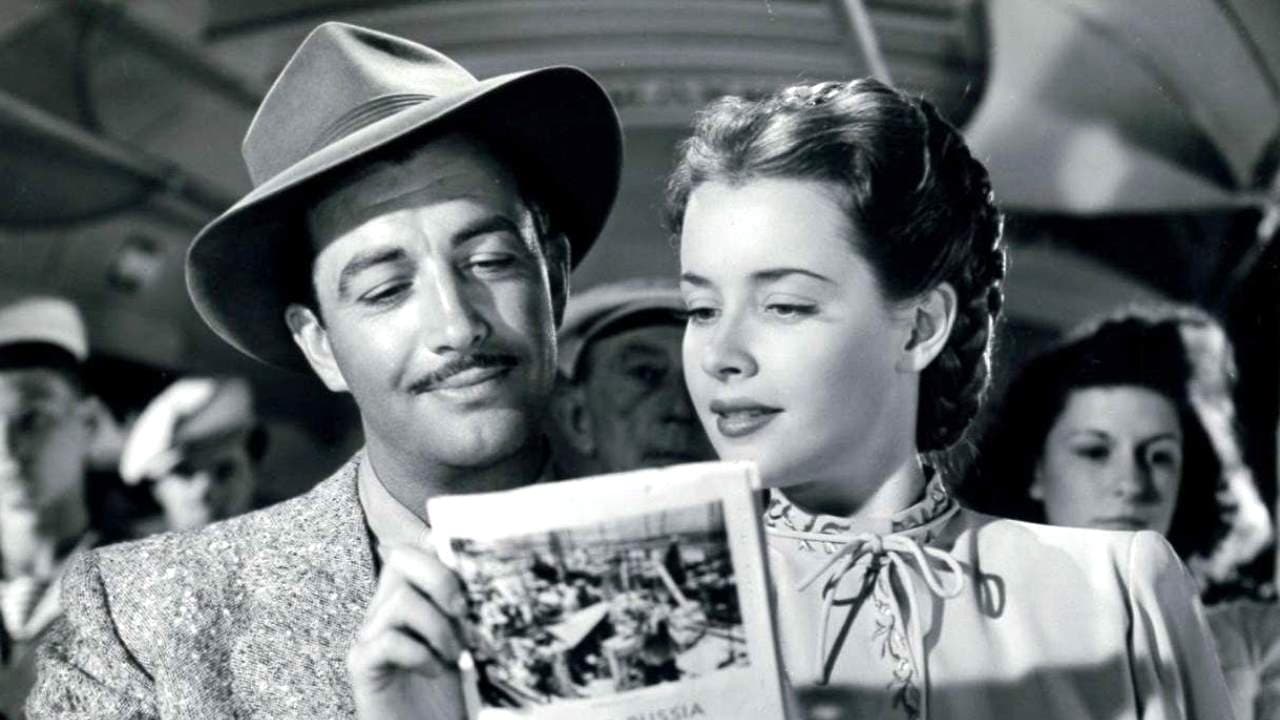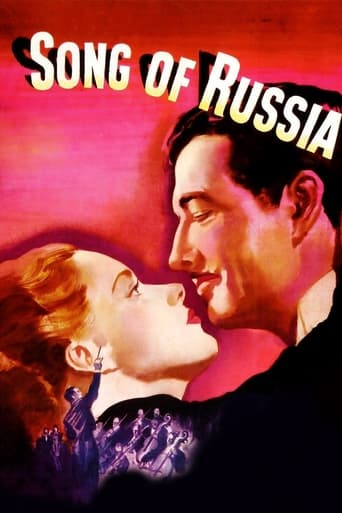

Perfectly adorable
... View MoreThere are women in the film, but none has anything you could call a personality.
... View MoreGreat movie. Not sure what people expected but I found it highly entertaining.
... View More.Like the great film, it's made with a great deal of visible affection both in front of and behind the camera.
... View MoreI own this film on DVD, having bought it from a private collector a while back. I like it, not for its plot, musical score or cinematography, but for the simple reason that it was a brash attempt by the government of the day to encourage Americans to sacrifice themselves to save a regime that represented the secret wishes of an elite circle of Washington insiders. I was stimulated to search for a copy after reading Ayn Rand's 1947 testimony before the HUAC committee on-line. Long interested in this pivotal period of world history, I had previously acquired the German newsreels for the latter part of 1941 (i.e. Operation Barbarossa). German army cameramen had recorded a great deal of the conditions in the cities such as Kiev, Minsk, Smolensk, Nikolayev, and dozens of rural villages in the Ukraine, Belarus and Russia. Their impossible-to-stage pictures showed first-world, European people, in the middle of the twentieth century, living in a degree of abject poverty, squalor, and despair which Americans would not believe without seeing. It rivaled the worst of the third world. Humans intentionally treated as expendable beasts of burden by their Bolshevik oppressors.So for Hollywood to produce such a glaring lie (not to mention distortion of the chronology of events) as "Song of Russia" in order to persuade people to support, or even risk life to participate in, a war to save such a regime is practically an act of enmity against its own people, in my opinion. It's easy to see why the Hollywood crowd is trying to make this movie disappear down an Orwellian memory hole. Highly recommended for anyone who doubts that Hollywood is anti-American.
... View MoreThanks to TCM for airing this astounding propaganda film in October 2003. Others have commented on the nearly unbearable Soviet propaganda in the film, but I watched the Stalin-supplied footage with awe as I had never seen most of it before, at least in this quality and quantity. The story is stock melodrama with the morals that we (America) must support our Russian allies at all costs and that the scorched earth policy is major war strategy.But through it all is the luminous face of Susan Peters, who was tragically paralyzed two years after this film's release and died in 1952. She is charming, delightful and disarming enough to inspire a whole village as well as the American conductor (Robert Taylor) who falls in love with her. They marry in an unlikely semi-religious ceremony.The notions that 1.)An American would be invited on a 40-city tour of Russia in early 1941, and 2.)That he would be able to take his Russian bride out of the Soviet Union (after the German invasion!) "for the greater good of Mother Russia," are pure fantasy. The huge symphony orchestras and the vast, aristocratic, jewel-bedecked audiences we see at theatre after theatre are laughably anti-communist, and the men would most likely have been conscripted by that time.Yet, as films reflect the history of our lives, I found this a fascinating chapter of the very brief period of US/USSR alliance. I'd love to see it again.
... View MoreThis was the first film that I can recall seeing, way back in the 1940s. I was about 6 or 7 years old at the time (I'm now 66). I can remember nothing of the rose-tinted picture of Stalin's Russia described in John Barnes' comments.In fact, I can recall little of the plot, other than that it featured an orchestral conductor and extracts from Tchaikovsky's 1st Piano Concerto. Thus, the film introduced me to Tchaikovsky and classical music and, for that, I am eternally grateful.
... View MoreWho knew that life under a brutal totalitarian regime could be so carefree? Even though the film was made for World War II propaganda purposes, the inanities that litter this film have to be seen to be believed. (That would be difficult, I know, since it is not available on videotape. or DVD.)Among the aspects of Russian life, circa 1941, to which this film introduces us are: town meeting democracy, freedom of religion, rural peasants who eat hearty meals at tables set with china, crystal and silver, and on and on. Soviet barbarities are played down or, more usually, ignored altogether. I saw this film in Washington around 1983 as part of a twin bill with the other infamous WWII paeon to Stalin's Russia, "Mission to Moscow." I think the latter was, in places, at least a bit more honest than this rose-colored clunker. If ever you wondered why Congress went hunting for Communists in Hollywood, check out these two films.
... View More